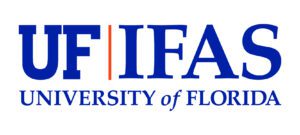Aug 1, 2023UF/IFAS recognizes ADA impact
The University of Florida (UF) Institute of Food and Agricultural Sciences (IFAS) is recognizing how the Americans with Disabilities Act (ADA) has helped farming.
As July 26 marked the 33rd anniversary of the ADA, UF wanted to highlight some of the many ways UF/IFAS works with its stakeholders to help make research, teaching and Extension as accessible as possible, according to a news release.


The most-reported disability types are mobility (12%), cognition (12%), independent living (6%), hearing (6%), vision (6%) and self-care (3%).
Through the Florida AgrAbility project, Serap Gorucu tries to ensure that everyone – even those with functional limitations — can operate the technology and machinery on the farm where they work.
“Agricultural producers must be able to work their farms,” Gorucu, a UF/IFAS assistant professor of agricultural and biological engineering, said in the release. “With the AgrAbility project, we aim to enhance the quality of life for farmers, ranchers and other agricultural workers with disabilities.”
Gorucu’s clients are grateful for her efforts.
“Florida AgrAbility is very important to farmers, and not just so we can continue what we’re doing and have the support to keep going with our careers,” Mika Hardison, a Jacksonville beekeeper, said in the release. “But we want to be independent, and we want to keep doing the things that we love doing. I am looking forward to just having the physical support and the modifications I need in order to keep doing what I love.”
Gorucu is only one of many examples of how UF/IFAS faculty and staff work to improve access for people with limitations — and make science-based information available to everyone.
UF/IFAS leverages a full gamut of ideas and technologies:
•Translating and trans-creating Extension documents and news releases into Spanish, allowing them to be widely shared and culturally relevant.
•Trams that allow disabled visitors and growers to participate in field days and tour UF/IFAS research fields and groves.
•Closed-captioned videos and live-captioned online presentations for those who struggle with hearing.
•Document accessibility services. These services offer various solutions to ensure compliance with accessibility standards and empower individuals with disabilities to access and interact with UF/IFAS content.
Extension successes
The actions focus on ensuring everyone can access as much information as possible, Saqib Mukhtar, UF/IFAS Extension’s associate dean, said in the release.
“We are UF/IFAS Extension education for All,” Mukhtar said in the release. “This signifies that our faculty and staff make every effort to ensure that science-based learning experiences are accessible to everyone. That includes document translations, subtitles for the hearing impaired, ADA-compliant accessibility in our Extension offices and more.”
Anita Neal, director of the UF/IFAS Southeast Extension District, cited many ways UF/IFAS is helping make activities and information more available.
“Most UF/IFAS Extension offices are housed in county buildings,” she said in the release. “As a rule, counties comply with ADA requirements for accessible parking, ramps for accessibility, restroom accessibility, elevators, and doors that can be opened easily and, in some cases, with the assistance of an automatic button.”
Neal cited a UF/IFAS Extension document that offers tips to Extension professionals and others to help them stage events or programs for clients of all abilities – from the start of the planning process rather than as an afterthought.
https://edis.ifas.ufl.edu/publication/WC299
Because UF/IFAS is dedicated to serving all Florida residents, the document provides short video scenarios to review with volunteers, whether they’re with Florida 4-H, Master Gardener Volunteers or others.
UF/IFAS research and education centers and demonstration sites across Florida exceed ADA requirements.
“When a new structure is built, everything is designed to be ADA compliant including parking spaces, egress pathways, bathrooms, and building fixtures,” Ronnie Cooper, associate director of facilities for UF/IFAS. said in the release. “During a significant renovation, efforts are made to bring non-compliant spaces up to date.”
The primary goal during a renovation is to gain ADA accommodation for as many points of use as possible, Cooper said in the release.
Read more about the efforts here.
















